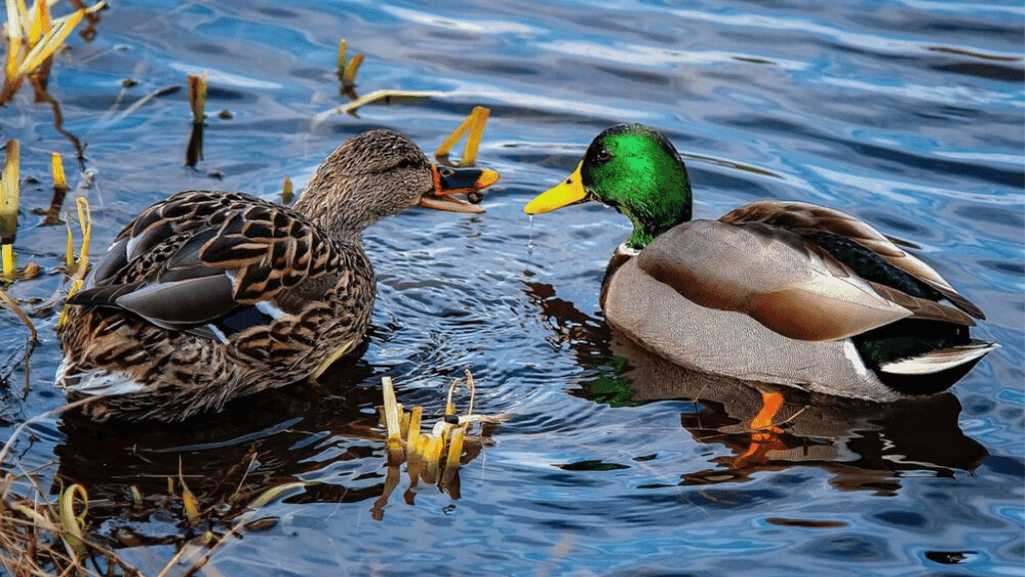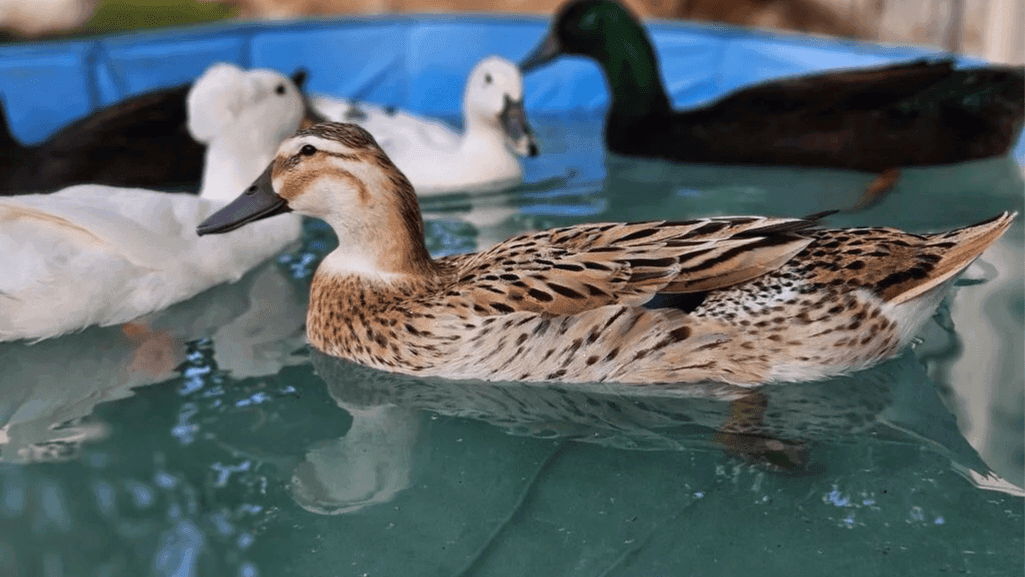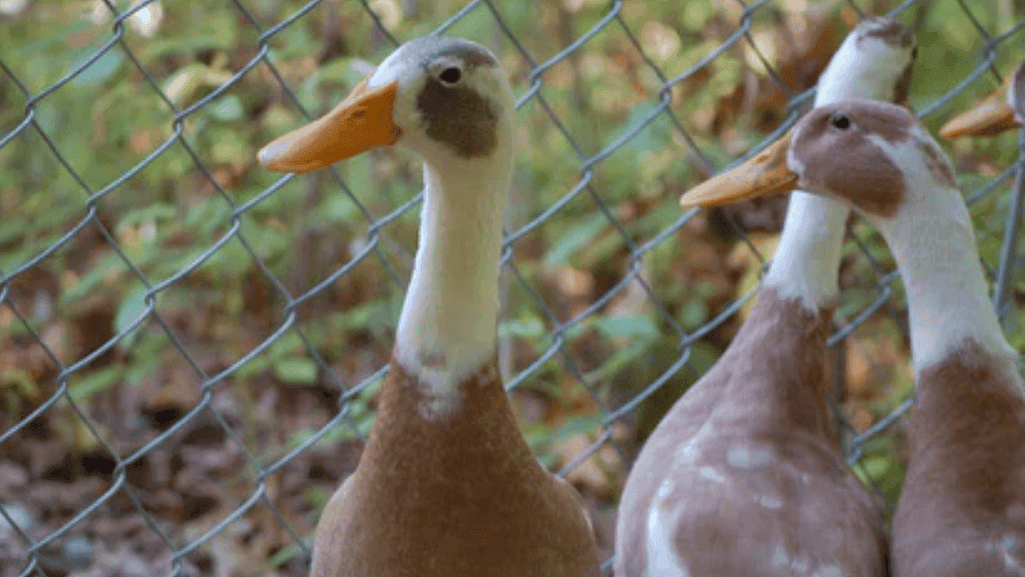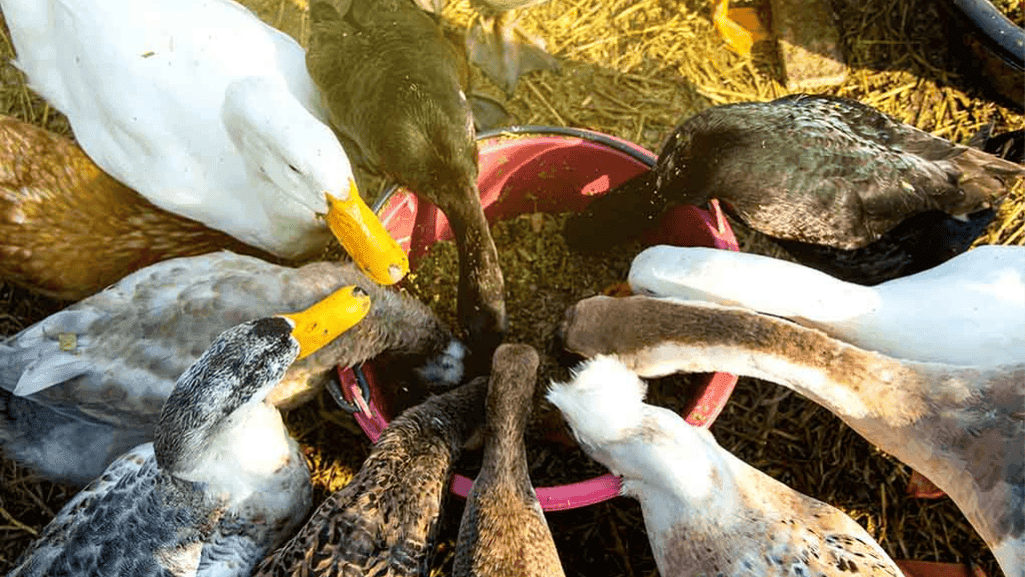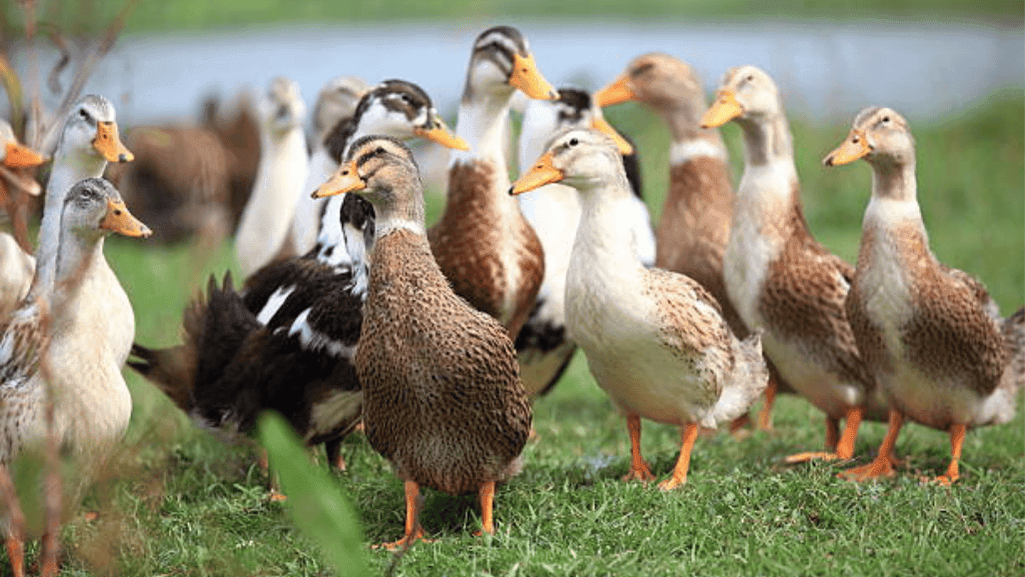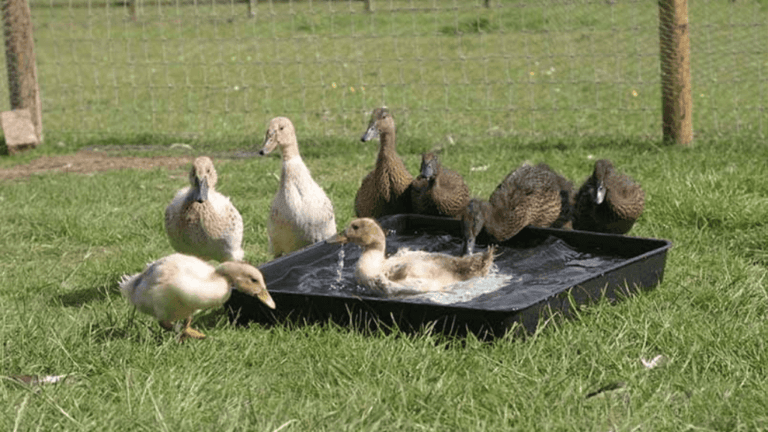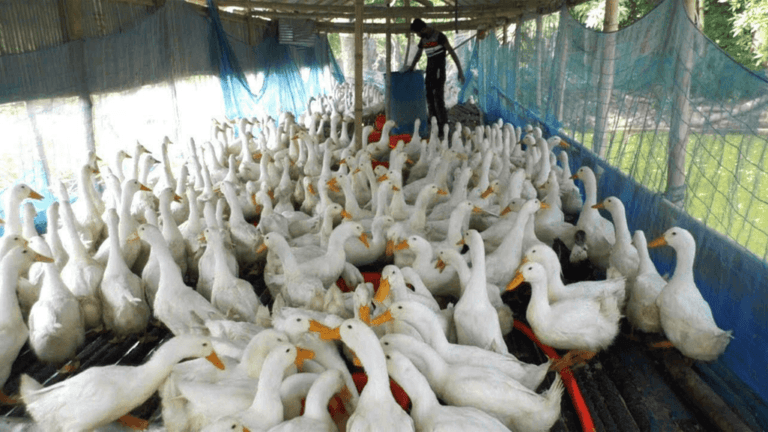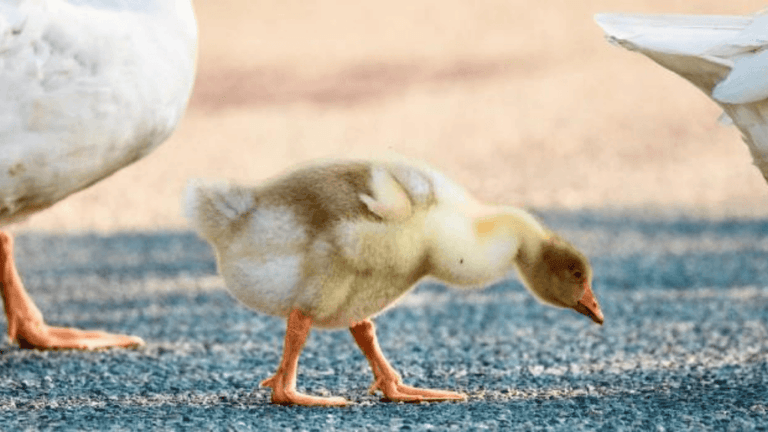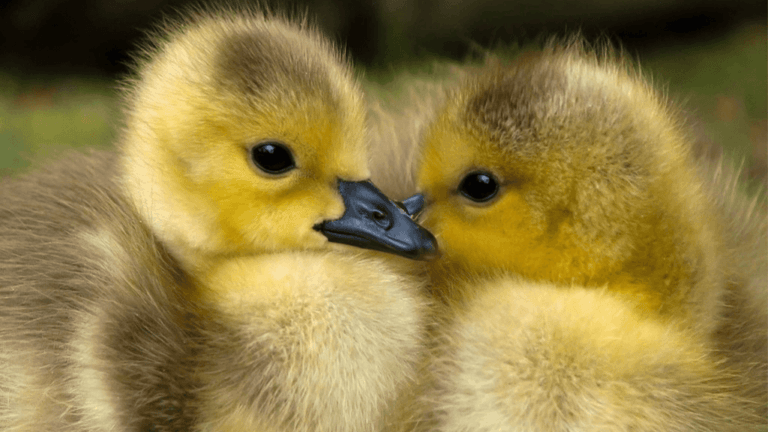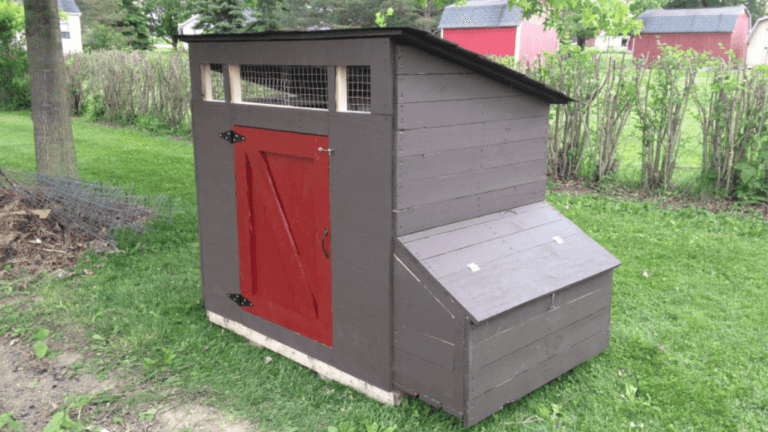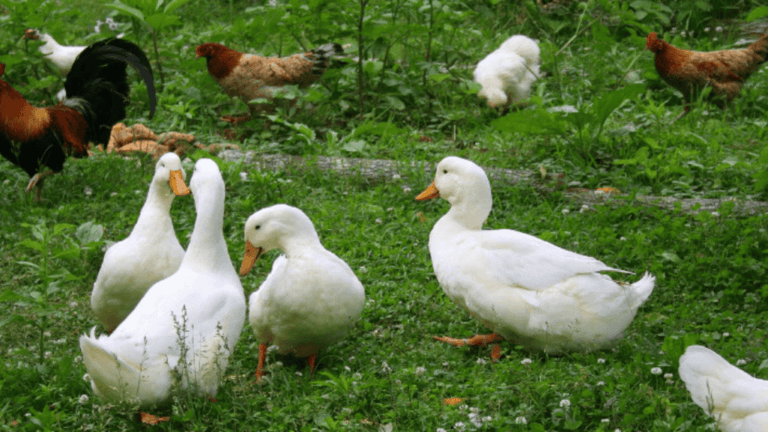Many people wonder if ducks need a pond to live well. Ducks can actually thrive in different places, like backyards. But, they must have the right water to stay healthy.
Ducks are fun to have around and can live in small spaces. They don’t always need a big pond. But, they do need water for many reasons. Water helps them clean their eyes and keeps their feathers in good shape. Knowing what ducks need in their is important for their happiness at home.
Different ducks like different homes. Some, like Pekins and Muscovies, do well in backyards. Others, like Mallards or Wood Ducks, prefer the wild. It’s important to know what each duck needs to keep them happy and healthy.
Key Takeaways:
- Ducks don’t necessarily need a pond, but they do require access to water for eye cleaning, oil gland activation, and feather maintenance.
- Domestic ducks are more adaptable to backyard settings compared to wildfowl.
- Understanding the specific water needs and habitat preferences of different duck breeds is essential for proper duck care.
- Providing a suitable duck environment that meets their water needs is essential for maintaining their health and well-being.
- Learning about duck habitat requirements is key to ensuring their happiness in a domestic setting.
Understanding Ducks’ Natural Habitat
To care for ducks well, knowing their natural habitats is key. Ducks need water for drinking, bathing, and finding food. In the wild, they use ponds, lakes, and streams for these needs.
The Importance of Natural Water Sources
Ducks need clean water every day. Experts say to give 2 gallons in the morning and evening for a small group. They also need a splash basin with 5 gallons in winter and two ponds in warmer weather.
Water helps keep their oil glands and feathers healthy. Ducks must submerge their heads to moisten their eyes and clear their nostrils. Without enough water, ducks can get sick, leading to dry skin and poor health.
Ducks do many things in water, like splashing and swimming. A small kiddie pool or plastic tub can be a good water source. This is better than ponds for washing.
Breeds and Their Habitat Preferences
Domestic ducks come from the Wild Mallard and have been bred for different uses. Each duck breed, like Pekins and Muscovies, has its own needs and preferences. It’s important to consider these when caring for them.
- Space requirements: Ducks need at least 6 square feet of shelter each, says Catskill Animal Sanctuary. The Global Federation of Animal Sanctuaries recommends 4 sq. ft. of floor space per medium bird and 16 sq. ft. of dry substrate per bird outdoors.
- Protection from predators: Keep ducks inside before dusk and let them out at dawn. Use galvanized hardware cloth to cover openings to keep predators out. Make sure openings are no bigger than a quarter.
- Flooring options: Ducks can live on concrete, wood, or dirt. But, bigger breeds and those with mobility issues need more traction.
“Ducks need water to submerge their heads for various purposes like moistening their eyes and clearing their nostrils.”
Knowing the natural habitats and water needs of different duck breeds helps keep them healthy and happy.
Do Ducks Need a Pond for Health?
Ducks can be happy without a pond, but they need clean water for health. Water keeps their mucous membranes moist and cleans their feathers. It also helps their oil glands, which are key for healthy feathers.
Ducks need water deep enough to soak their heads for cleaning. They spend about 10% of their time in water when they can.
Benefits of Access to Water
Water is great for ducks’ health and happiness. A simple plastic pool with clean water works well. It lets them clean off parasites and mites.
The water also helps them spread waterproofing oils on their feathers. This is important for keeping their feathers healthy and warm. Swimming lets them do natural behaviors, which is good for their well-being and fertility.
“Ducks need areas where they can easily exit water sources to prevent exhaustion and drowning.” – Dr. Lichtenwalner
Risks of Limited Water Availability
While ponds aren’t a must for duck health, not enough water access for ducks can be risky. Ducks might get eye problems, feather damage, and trouble keeping warm without enough water. But, ponds can also have diseases and parasites from wild waterfowl, which is bad for domestic ducks.
It’s key to keep ducks safe from predators and diseases when they have water access. To keep your ducks healthy and happy, give them a clean, safe water place. Make sure to clean and maintain the water and take biosecurity steps to avoid risks. By knowing how important water is for ducks and taking the right steps, you can make a great home for them.
For more on exotic ducks and their special traits, check out Ducks New World.
Pond Alternatives for Duck Care
Ducks love ponds, but backyard owners can offer other water options. These alternatives help keep ducks healthy and happy. With some creativity, you can create a temporary water source for them.
Plastic tubs or children’s pools are great for ducks. They need water deep enough to clean their bills, about 10 inches. A 5-foot kiddie pool holds about 130 gallons, needing a refill every week or two.
Providing Suitable Water Options
Choosing easy-to-clean water sources is key. Larger setups, like 150-gallon stock tanks, can be tough to keep clean. Adding a drain helps with water circulation and cleaning.
Creating a Temporary Water Source
There are many designs for duck water sources online. These ideas help you create a good duck care area. You can even use rainwater or make a bigger, more permanent setup.
Ducks need water deep enough to submerge their whole head.
Remember, cleaning and refilling water sources is vital. It keeps ducks healthy and happy, even without a pond. By providing the right water and keeping it clean, you can meet their needs.
Social Needs of Ducks
Ducks love to be around their friends. In the wild, they forage, preen, and rest together. This shows how important duck social behavior is for their happiness.
Ducks do best in groups of three to six. This size helps them feel safe and happy. They need at least one friend, and it’s best to have more females than males.
“Ducks are social animals and they will be unhappy if kept alone. You can keep just females together or just males together or a mixture of both.”
Ducks spend a lot of time in water. They preen, bathe, float, and rest near it. This keeps them clean and strengthens their friendships. Make sure your ducks have a place to swim every day.
The Importance of Companionship
Ducks don’t like to be alone. Without friends, they can get stressed, anxious, or even depressed. They might stop eating or start causing trouble.
So, if you’re thinking about getting ducks as pets, think about their need for friends. They need companions to be happy and healthy.
Feeding Ducks Without a Pond
Ducks, like the Mallard Ducks found in North America, Europe, and Asia, eat a lot of different foods. They enjoy seeds, plants, worms, snails, and shrimp. It’s important to give them a balanced duck diet when they don’t have a pond.
Feeding ducks wrong can hurt their health. It can stop them from growing, migrating, reproducing, and growing feathers. When feeding ducks without a pond, watch out for overcrowding. This can mess up the local plants and animals.
Appropriate Diet for Domestic Ducks
Domestic ducks can eat commercial duck feed or unmedicated chicken feed. Add niacin for growth. Grit helps them digest food. Even without a pond, they can find insects and plants. But, a balanced diet is key for their nutrition.
“Ducks need a minimum of 2 square feet per bird if they have regular access to the outside; if they are cooped up for long periods, they should be provided with 4 to 5 square feet or more each to keep them from driving each other crazy.”
Supplements for Nutritional Gaps
Nutritional supplements for ducks can fill diet gaps, even without a pond. Important supplements include:
- Calcium for strong bones and eggshells
- Vitamin D3 for calcium absorption
- Vitamin E for immune system support
- Probiotics for digestive health
Ducks have a special leg system to keep their feet warm. But, they can get frostbite below 20°F if it’s too cold. Moisture and cold together can also cause frostbite because ducks produce a lot of moisture.
Considerations for Backyard Duck Owners
Before starting your journey with backyard duck keeping, it’s key to know what ducks need. They can add joy and fresh eggs to your life. But, they also need proper care to do well.
One key thing is to give ducks enough space. Holderread’s guide says ducks need at least 3.02 square feet of floor space per laying duck in their coop. They also need a secure outdoor area of at least 50 square feet per bird. Ducks are social and do best in groups of at least two.
Space Requirements and Environment
When setting up your duck’s home, think about these points:
- Ducks need clean water for drinking and bathing. But, they don’t always need a swimming pond.
- Good fencing is key to keep ducks safe and stop predators like raccoons or wild dogs.
- Ducklings need water all the time but must be watched closely to avoid drowning early on.
- Ducks can be messy, leaving a lot of wet feces. This should be considered when planning your property for ducks.
Local Regulations and Zoning Laws
Before starting your duck flock, check local duck regulations and zoning laws. In suburbs, there might be limits on how many birds you can have. Also, test your soil to make sure it’s safe for your ducks to roam and eat.
An inner dog-proof perimeter fence is being built due to frequent wild dog attacks, with one duck already being lost.
By knowing the duck space requirements and following local laws, you can make a safe and happy home for your ducks in your backyard.
Conclusion: Is a Pond Necessary?
A pond isn’t a must-have for keeping ducks, but clean water is key for their health. Ducks have evolved to live in water, using it for preening, eating, and socializing. Their bills help filter food, and they have a gland for waterproofing feathers. Keeping a pond healthy is important for ducks and other water creatures.
Final Thoughts on Duck Habitat Needs
Ducks naturally gather in water for communication and socializing. While a pond is best, alternatives like kiddie pools or buckets work too. It’s important to keep these water sources clean to avoid health problems. Also, a balanced diet and a safe place are vital for ducks’ well-being.
Recommendations for Duck Keepers
If you’re thinking of keeping ducks without a pond, focus on their social, nutritional, and environmental needs. Good housing, a balanced diet, and companionship are key. Regular health checks are also important. Limping can mean a health issue that needs quick attention. With the right care, ducks can thrive in a backyard habitat, even without a pond.


